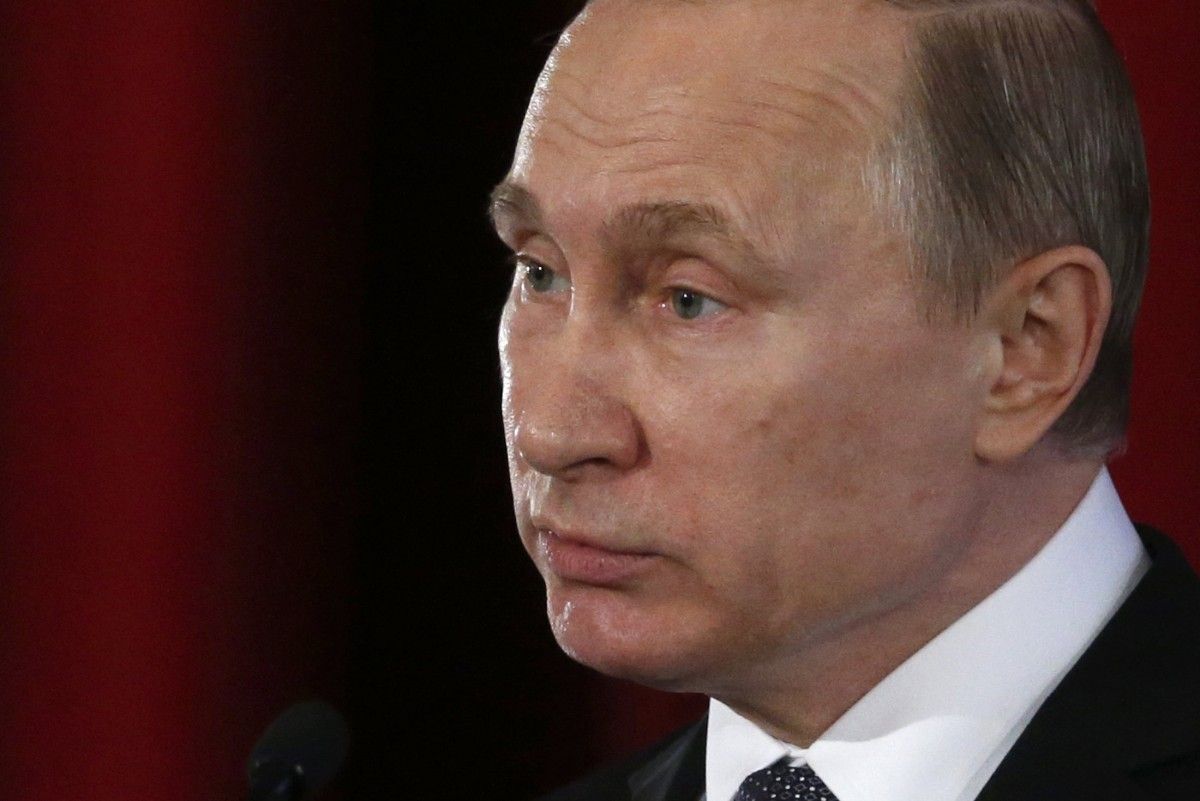
"Putin's shakeup creates a military and police force of up to 400,000 well-trained servicemen loyal to him personally," Moscow-based correspondent for The Daily Beast Anna Nemtsova wrote in an article titled "Putin Creates Enormous Praetorian Guard, Puts His Bodyguard in Charge," published on April 12.
The newly appointed commander is one of Putin's most trusted men, a former undercover KGB agent named Victor Zolotov, a man with the massive build and intimidating face of a bodyguard who has been responsible for the security of the Russian leadership for almost 20 years.
When The Daily Beast asked Putin supporters why Putin decided now to form what amounts to a vast Praetorian guard, they said (privately) that the Russian president is terrified a new Russian revolution will be staged by Washington.
"Of course, the president is concerned, he can see that the United States wants to overthrow him, like they did to [Libyan strongman Muammar] Gaddafi, or look what they have done in Ukraine—they dream of seeing Russia fall apart, so Putin takes measures to prevent a Ukrainian-style coup," Sergei Markov, a member of the Duma's Public Chamber, told The Daily Beast.
So (after reinforcing Russian military bases in the Middle East with the newest weapons the Kremlin could afford) Putin has focused on building a domestic army to conduct military operations inside the country.
President Putin announced the creation of the National Guard on April 6, and on April 7 the president spoke at a media forum called Truth and Justice about the West trying to destabilize Russia via the offshore banking scandal known as the Panama Papers.
Read alsoICIJ: Offshore network tied to Putin"They've plowed through offshore [funds]," he said, but "[Putin] is not there. There is nothing to talk about. But the task has been assigned! So what have they done? They've created an informational product by finding some acquaintances and friends," Putin said, with undisguised irritation that his best friend Sergei Roldugin is involved in the scandal.
On Sunday, one of Russia's top television shows, Vesti, charged that the Panama Papers investigation has been ordered by the U.S. State department, CIA and other U.S. special services interested in discrediting the Russian president.
"Why would Putin need billions of dollars, where could he possibly spend them?" Markov asked rhetorically. "If he had to escape to Europe they would immediately squash him and for as long as he is in power, he does not need money."
"As for Putin's friends," Markov said, naming no one in particular, "they steal."
As a result of Putin's major police reform, thousands of law enforcers, who just last month were on duty catching drug dealers and illegal immigrants, are now left without jobs or being rehired as part of the National Guard forces. "The idea that the unemployed officers might begin to sell drugs does not seem to worry the president," Moscow political scientist Dmitriy Oreshkin tells The Daily Beast. "Putin is too paranoid about losing his own power, so, today the officers' loyalty to him personally is the priority. That was why Putin chose to appoint his personal bodyguard, Zolotov, to command the National Guards."
On Monday, the cover The New Times Magazine showed a little figure of Putin surrounded by monstrous giants with a one-word headline: "Paranoia."
Officially, Putin's new almighty National Guard forces were created to defend Russian citizens' rights and freedoms. "It seems that rights and freedoms in Russia are in serious danger if 400,000 military men were urgently needed for their defense," the magazine said.
The major reorganization of forces was prepared in full secrecy; the decisions were made quickly, without any discussions either with parliament or with civil society. "The news was a total surprise for all members of parliament," Duma Deputy Dmitry Gudkov told The Daily Beast. "We could only guess why the president decided to create a national guard."
One theory suggests that Putin once again played his favorite multi-dimensional chess game so he could take control over the fearless put politically problematic Chechen police, who until recently were under the command of the authoritarian, eccentric and often menacing Chechen leader, Ramzan Kadyrov.
Public opinion experts do not see any obvious reasons for Putin to be concerned about his future. "The president's approval rating moved down slightly from 89% to 82%, so there is no sign of a revolutionary situation," says Denis Volkov, spokesman the Levada Center polling and research firm.
Putin's spokesman, Dmitry Peskov, told reporters that the idea to merge various police units was studied for a long time and that the decision was not connected with forthcoming elections in Russia.
With the price of oil having dropped by almost $100 per barrel and the economy shrinking, the Kremlin had to come up with a plan to prevent or control public anger. "There are two ways to compensate for this $100 per barrel," pro-Putin political analyst Yuri Krupnov told The Daily Beast. "Either offer a major industrialization, develop a few dozen industries, or tighten the bolts, keep people under pressure."
Deputy Gudkov contends, "Putin will obviously continue tightening the bolts in his hands—until he breaks them."

